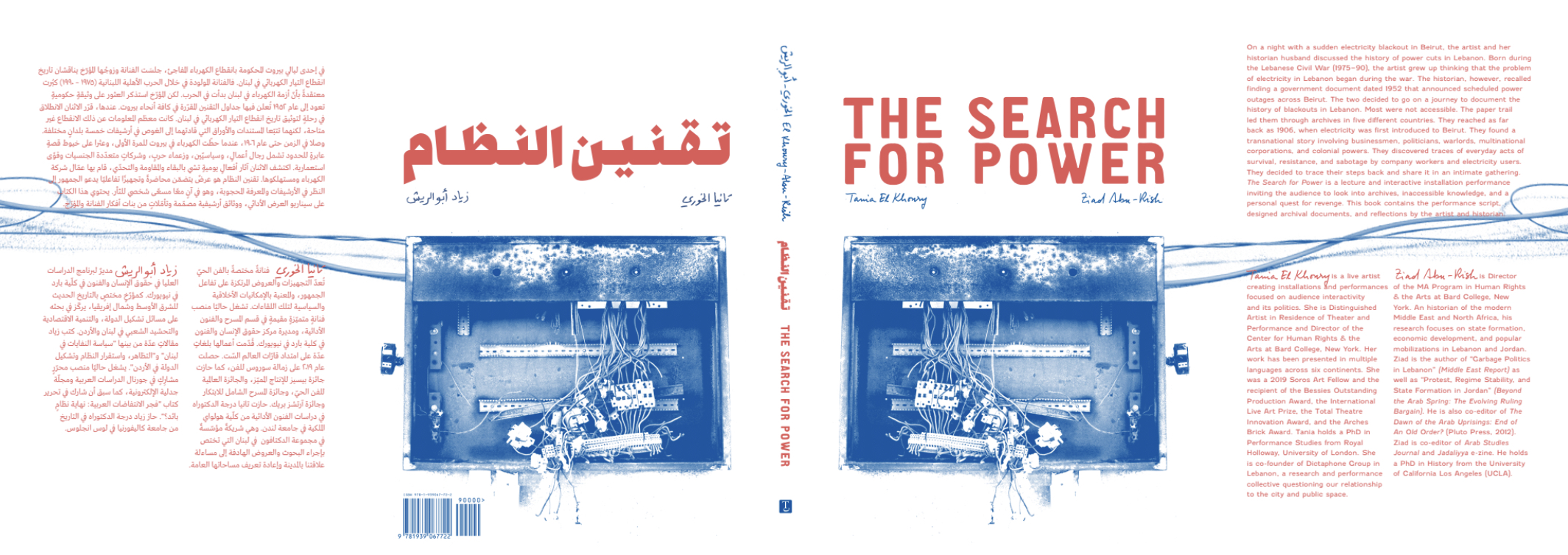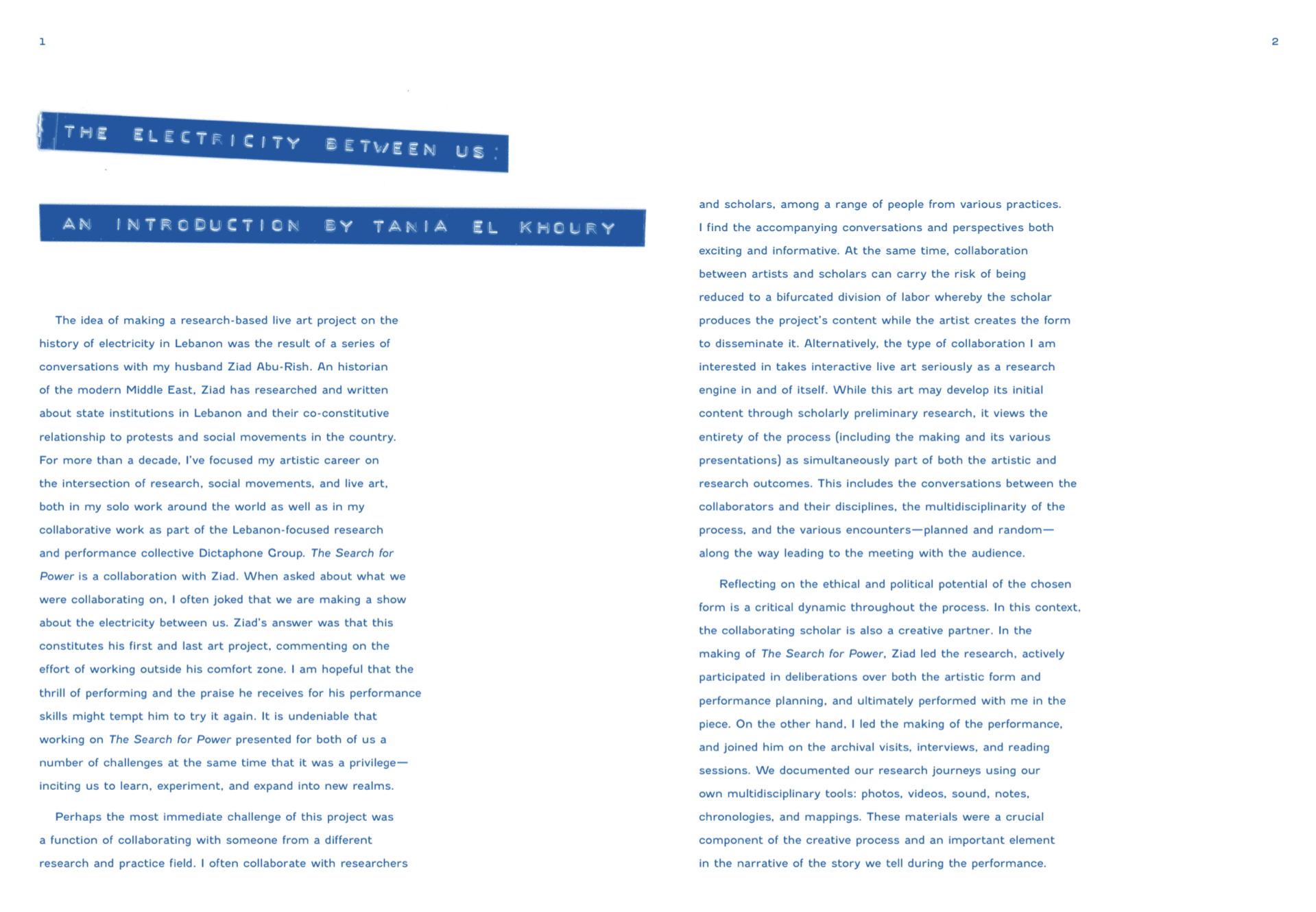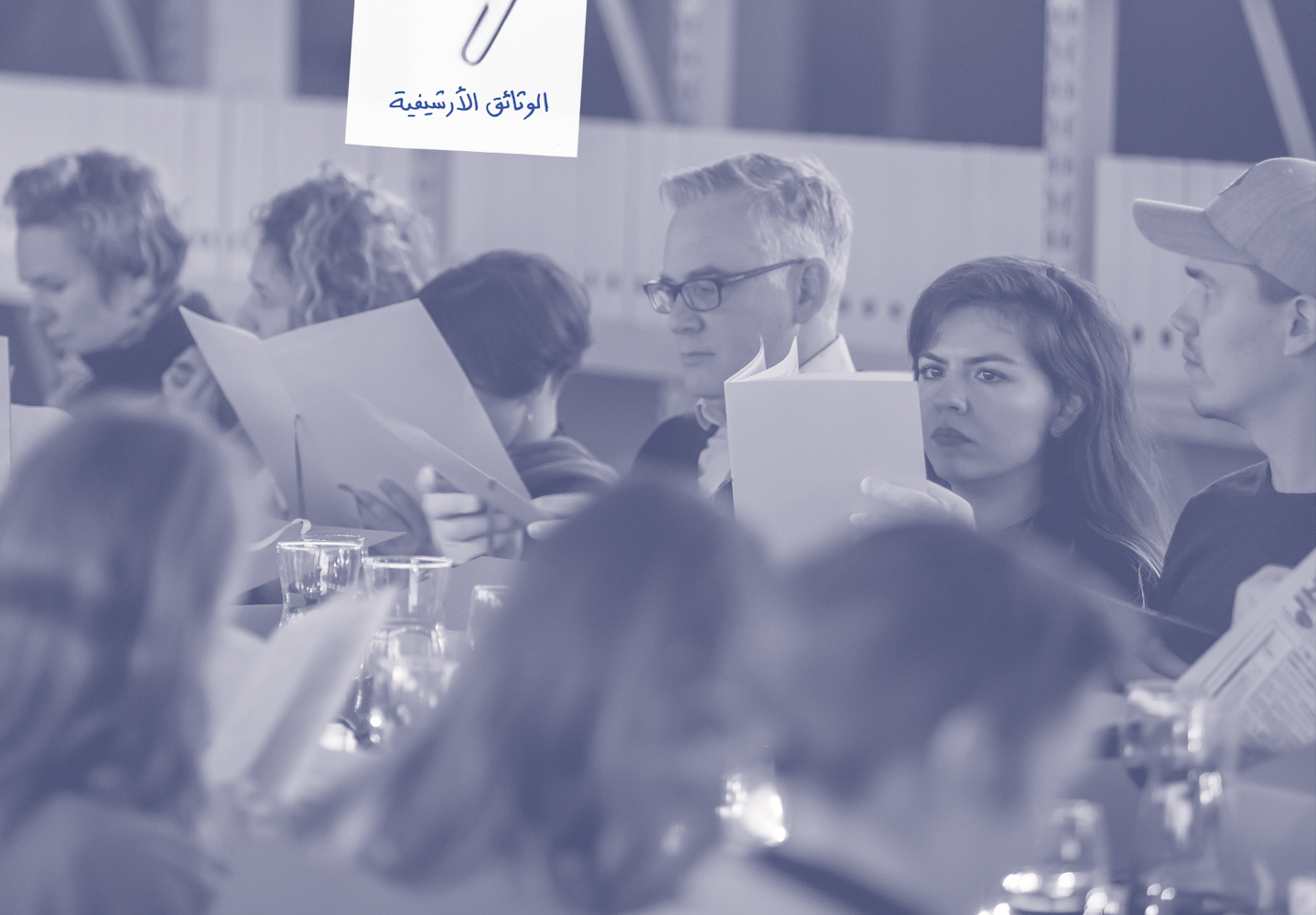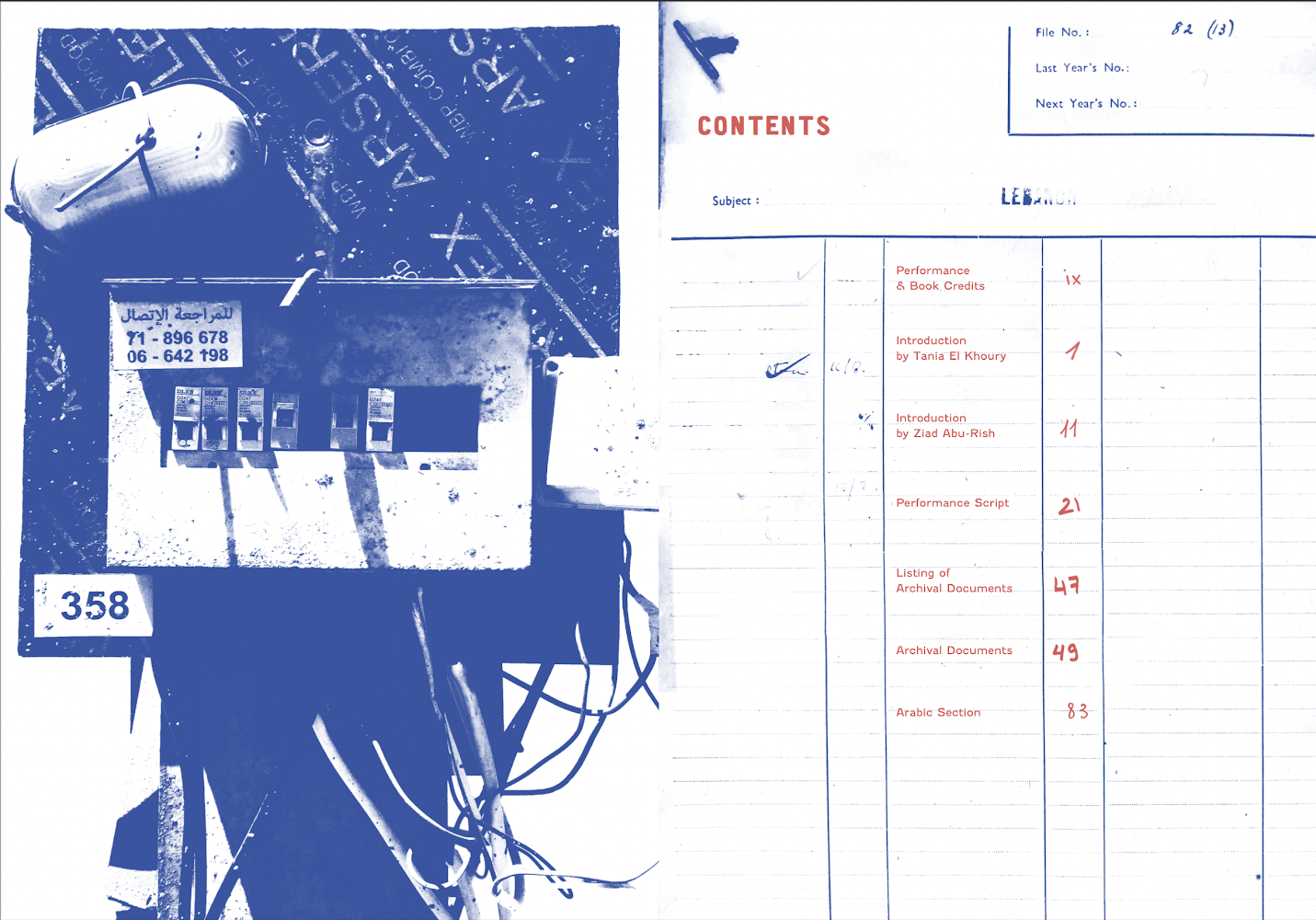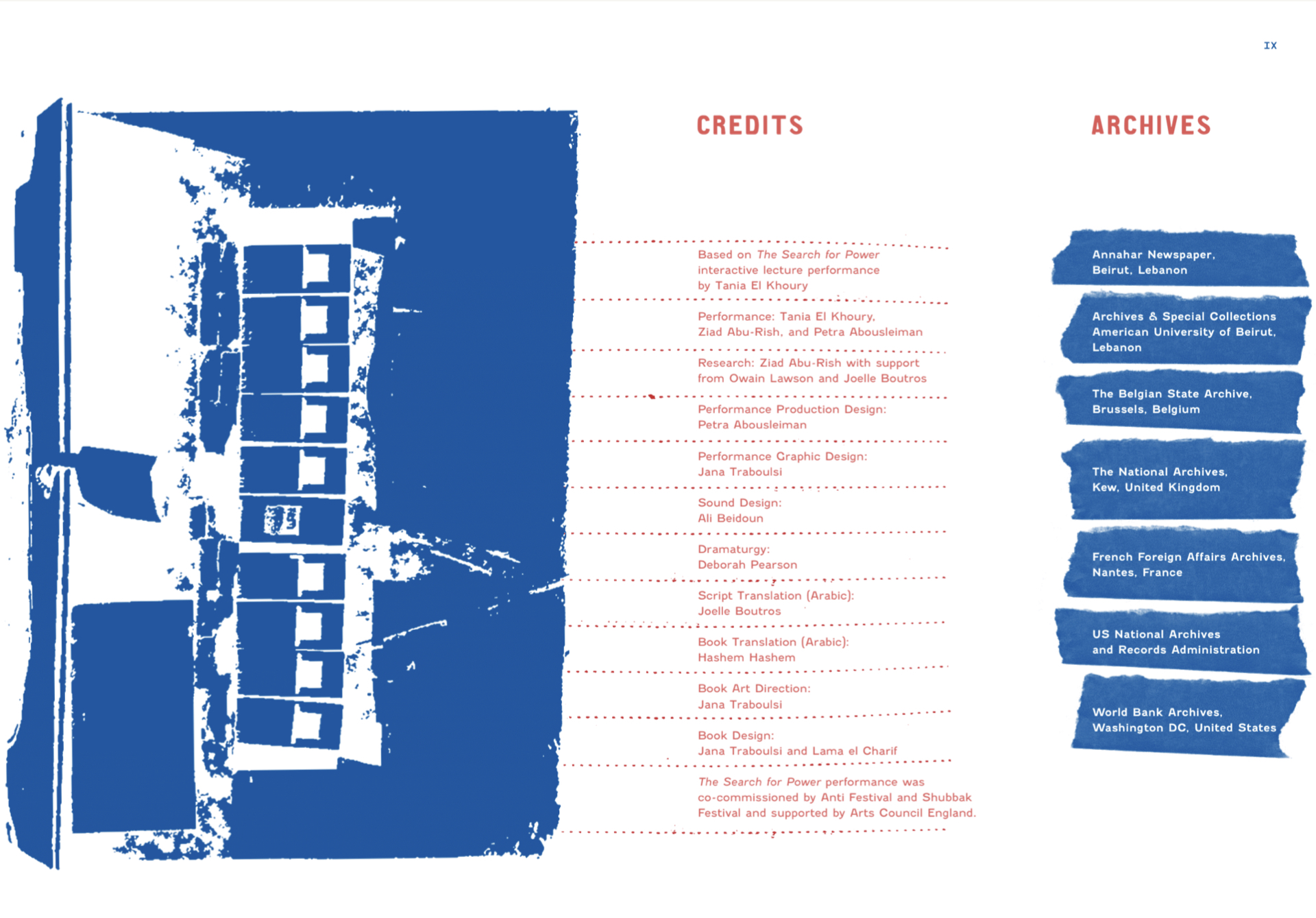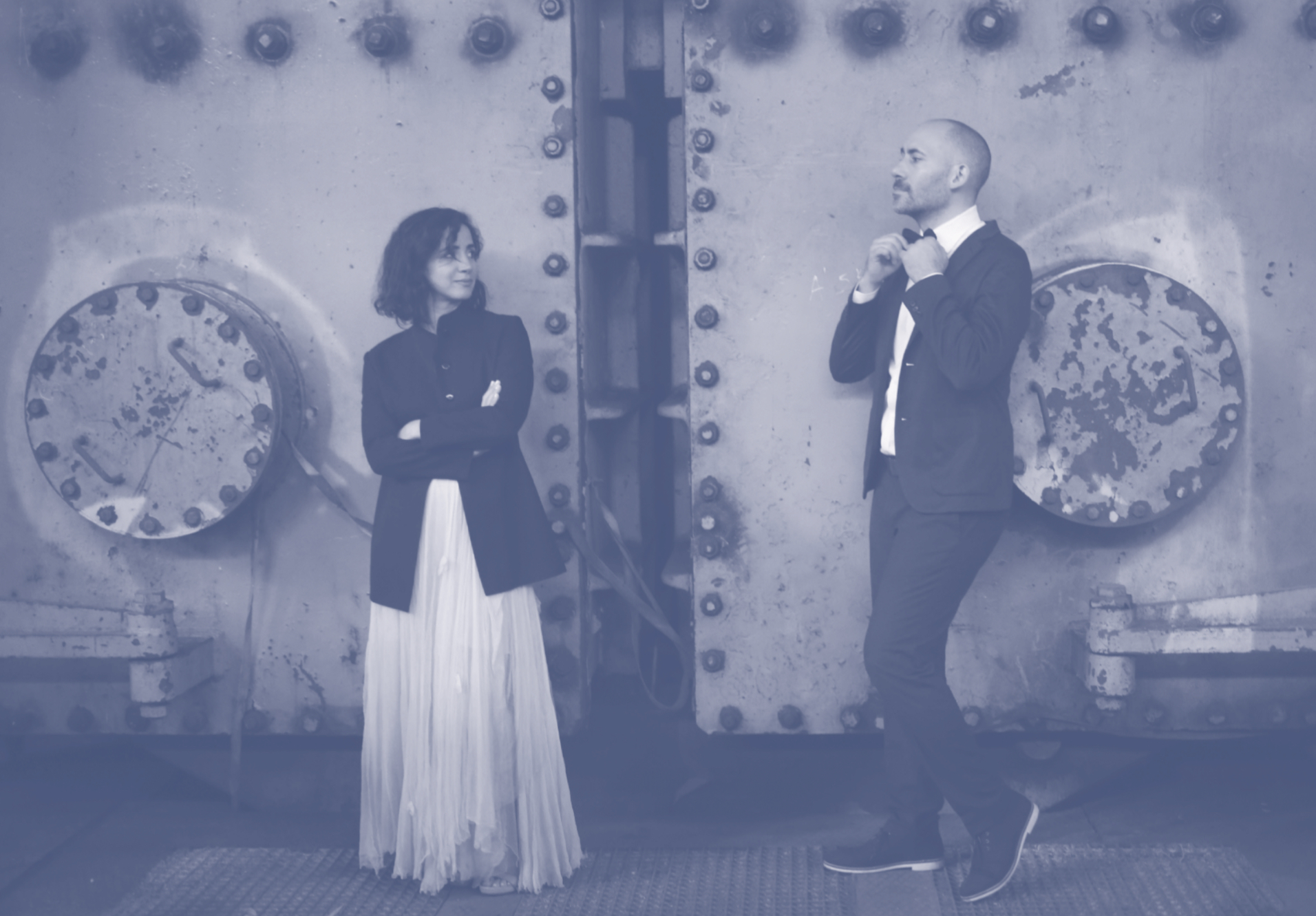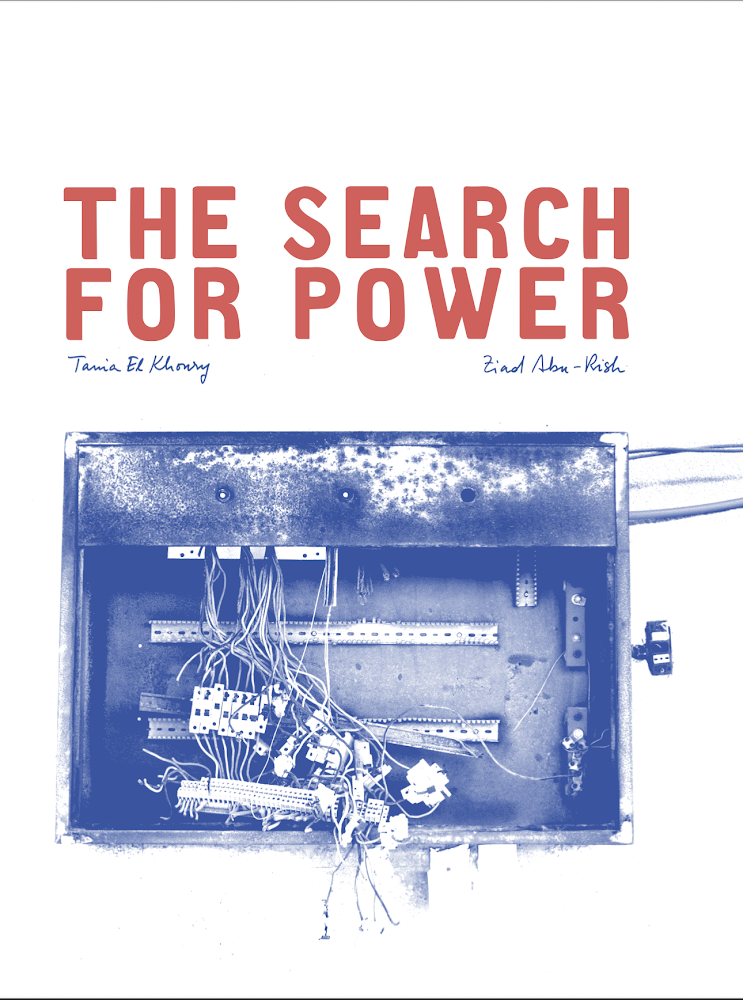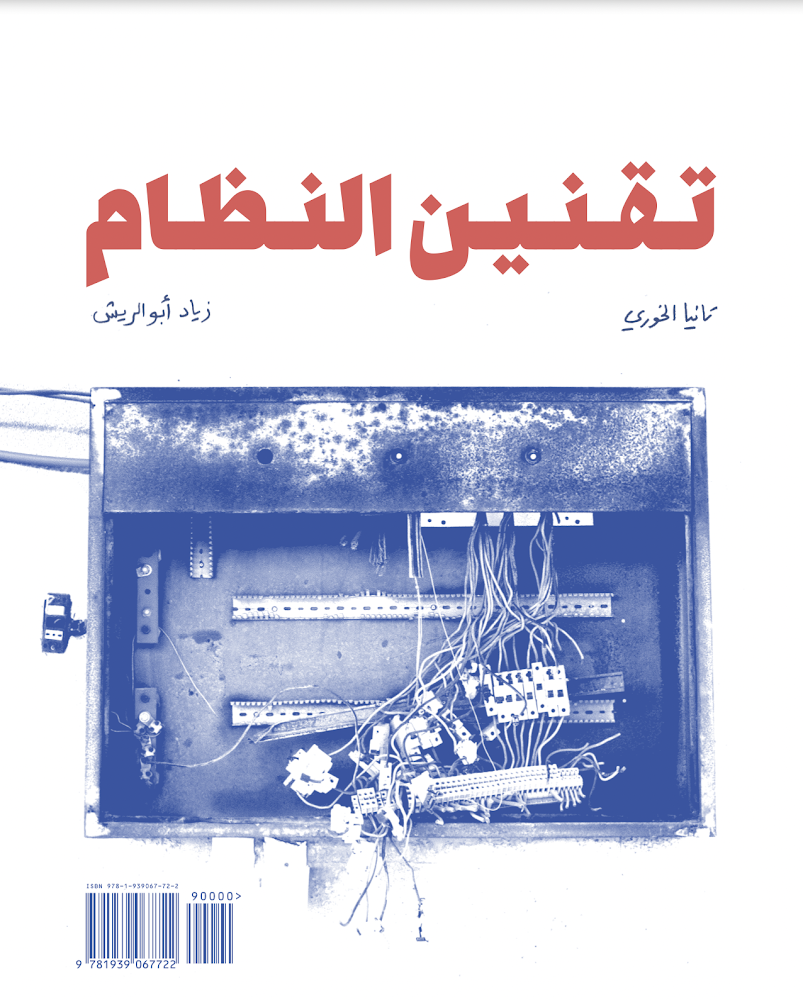Tadween Publishing is excited to announce the near release of The Search for Power (تقنين النظام) by Tania El Khoury and Ziad Abu-Rish.
On a night with a sudden electricity blackout in Beirut, the artist and her historian husband discussed the history of power cuts in Lebanon. Born during the Lebanese Civil War (1975–90), the artist grew up thinking that the problem of electricity in Lebanon began during the war. The historian, however, recalled finding a government document dated 1952 that announced scheduled power outages across Beirut. The two decided to go on a journey to document the history of blackouts in Lebanon. Most were not accessible. The paper trail led them through archives in five different countries. They reached as far back as 1906, when electricity was first introduced to Beirut. They found a transnational story involving businessmen, politicians, warlords, multinational corporations, and colonial powers. They discovered traces of everyday acts of survival, resistance, and sabotage by company workers and electricity users. They decided to trace their steps back and share it in an intimate gathering. The Search for Power is a lecture and interactive installation performance inviting the audience to look into archives, inaccessible knowledge, and a personal quest for revenge. This book contains the performance script, designed archival documents, and reflections by the artist and historian.
في إحدى ليالي بيروت المحكومة بانقطاع الكهرباء المفاجئ، جلست الفنانة وزوجها المؤرخ يناقشان تاريخ انقطاع التيار الكهربائي في لبنان. فالفنانة المولودة في خلال الحرب الأهلية اللبنانية (1975 – 1990) كبرت معتقدة بأن أزمة الكهرباء في لبنان بدأت في الحرب. لكن المؤرخ استذكر العثور على وثيقة حكومية تعود إلى عام 1952 تعلن فيها جداول التقنين المقررة في كافة أنحاء بيروت. عندها، قرر الاثنان الانطلاق في رحلة لتوثيق تاريخ انقطاع التيار الكهربائي في لبنان. كانت معظم المعلومات عن ذلك الانقطاع غير متاحة، لكنهما تتبعا المستندات والأوراق التي قادتهما إلى الغوص في أرشيفات خمسة بلدان مختلفة. وصلا في الزمن حتى عام 1906، عندما حطت الكهرباء في بيروت للمرة الأولى، وعثرا على خيوط قصة عابرة للحدود تشمل رجال أعمال، وسياسيين، وزعماء حر ٍب، وشركات متعددة الجنسيات وقوى استعمارية. اكتشف الاثنان آثار أفعال يومية تشي بالبقاء والمقاومة والتحدي، قام بها عمال شركة الكهرباء ومستهلكوها. "تقنين النظام" هو عرض يتضمن محاضرة وتجهيزاً تفاعلياً يدعو الجمهور إلى النظر في الأرشيفات والمعرفة المحجوبة، وهو في آن معاً مسعى شخصي للثأر. يحتوي هذا الكتاب على سيناريو العرض الأدائي، ووثائق أرشيفية مصممة وتأملات من بنات أفكار الفنانة والمؤرخ
Table of Contents
The Electricity Between Us: An Introduction
by Tania El Khoury
Untitled: An Introduction
by Ziad Abu-Rish
Performance Script
Listing of Archival Documents
Archival Documents
Arabic section
Authors
Tania El Khoury is a live artist creating installations and performances focused on audience interactivity and its politics. She is Distinguished Artist in Residence of Theater and Performance and Director of the Center for Human Rights & the Arts at Bard College, New York. Her work has been presented in multiple languages across six continents. She was a 2019 Soros Art Fellow and the recipient of the Bessies Outstanding Production Award, the International Live Art Prize, the Total Theatre Innovation Award, and the Arches Brick Award. Tania holds a PhD in Performance Studies from Royal Holloway, University of London. She is co-founder of Dictaphone Group in Lebanon.
Ziad Abu Rish is Director of the MA Program in Human Rights & the Arts and Associate Professor of Human Rights and Middle Eastern Studies at Bard College. An historian of the modern Middle East and North Africa, his research focuses on state formation, economic development, and popular mobilizations in Lebanon and Jordan. Ziad is the author of “Garbage Politics in Lebanon” (Middle East Report) as well as “Protest, Regime Stability, and State Formation in Jordan” (Beyond the Arab Spring: The Evolving Ruling Bargain). He is also co-editor of The Dawn of the Arab Uprisings: End of An Old Order? (Pluto Press, 2012). Ziad is co-editor of Arab Studies Journal and Jadaliyya e-zine. He holds a PhD in History from the University of California Los Angeles (UCLA).

